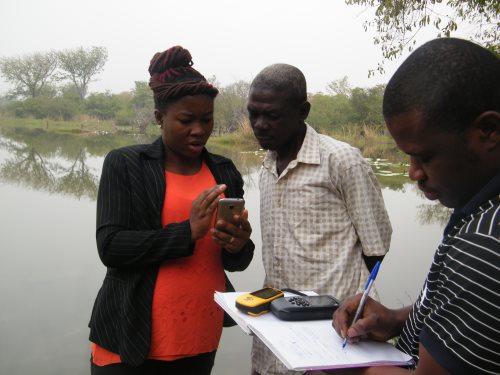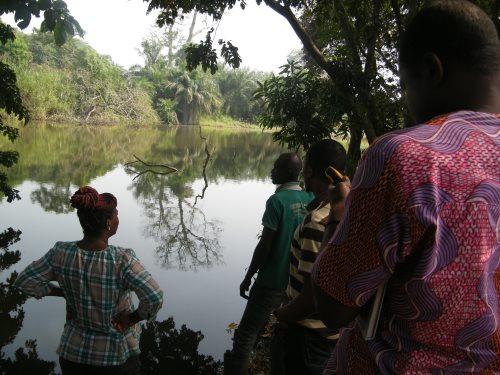Emma Baah Agyapong
Other projects
25 Jun 2019
Conservation of Community Forest Fragments and Riparian Ecosystems in the Transitional Zone of Ghana
30 Sep 2020
Community Forest and Riparian Ecosystem (CFRE) Conservation and Livelihood Improvement in the Upstream Portion of the Black Volta River Basin (BVRB) of Ghana
The aims of the project are:
1. To promote the conservation of community forest patches and riparian vegetation along the Black Volta Basin.
2. To embark on mass education on the importance of forest and riparian vegetation in supporting wildlife.
3. To assist community members to map and assess tree and reptile species in selected riparian ecosystems to serve as a basis of management plan design.
4. To build the capacities of local members to effectively manage their own resources and equip them with information and planning framework necessary to protect and conserve them.
5. To train members on nursery establishment and plant 1000 trees (as buffer zone) along one priority riparian forest fragment.

Maaluwe community riparian vegetation which inhabit diverse fish, crocodile and tree species.
The Black Volta basin and its surrounding landscapes serve as important ecosystems that support diverse animal and plant species. These landscapes are least protected and declining at faster rate through due to human activities such as farming, bushfire, indiscriminate felling of tree and poaching of animals all resulting from ignorance and poor attitude in relation to conservation. Therefore, the project will create the awareness to about 1000 community members on the need to conserve these ecosystems and build the capacities of local community members to manage their own resources. The project will embark on mass education on the importance of forest and riparian vegetation in supporting animal lives.

Menji riparian vegetation and water which support diverse plant and crocodile species
The team in collaboration with community members will conduct an inventory of 3 priority riparian vegetation from each community to know the composition of tree and reptile species which will serve as the basis for the development of management strategy.
The work will build the capacity of 100 influential people in the communities (including teachers, chiefs, assembly members, church leaders and students) who will serve as trainers on the management of riparian ecosystem inhabiting reptiles. There will be a formation of Environmental Management Clubs (EMC) in 5 schools (basic, junior and senior high schools) to create the attitude of appreciation and conservation of nature in school growing children and adults. There will be the formation of Community Fire Management Advisory Groups (CFMAG) who will be trained to oversee the management of wildfire, which is one of the threats to these ecosystems. Community members will be trained on nursery establishment and silvicultural operations and plant 1000 trees along one priority fragment to prevent encroachment to serve as a model for other communities to follow.
In order to ensure the acceptance local residents on biodiversity conservation concept, communities will be involved actively and fully in all the activities of the project to create a sense of responsibility and continuity. Moreover, common platform will be created for community members to share ideas on sustainable management of their resources and link them to resources managers and other stakeholders to support them in developing the area to attract tourists and researchers.